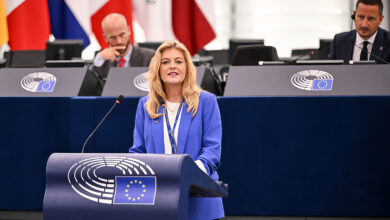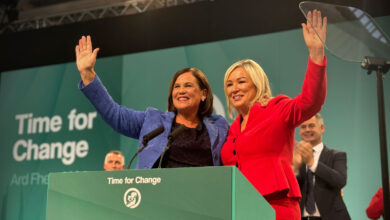Lobbying under scrutiny
 eolas explains how the new registration system works.
eolas explains how the new registration system works.
Ireland’s first formal register of lobbyists went live at www.lobbying.ie on 1 May – the first step in implementing the Regulation of Lobbying Act 2015. The register is maintained by the Standards in Public Office Commission which will also produce a code of conduct for lobbying.
Potential registrants can familiarise themselves with the register before the Act commences on 1 September. The first return will be required by 21 January next year and will cover lobbying activities conducted between September and December inclusive. Returns will be required three times per year: in January, May and September.
Minister for Public Expenditure and Reform Brendan Howlin maintains that the new system will answer the question: “Who is lobbying whom about what?” Under the Act, a lobbyist is defined as a person who makes, manages or directs “relevant communications” to a Minister or a senior public servant. Lobbyists can include employers (of more than 10 full-time employees), representative bodies, advocacy-type bodies (for particular causes), professional third party lobbyists, and any person lobbying about land development and zoning.
Relevant communications may be either oral or written and addressed either directly or indirectly to the “designated official” being lobbied. Politically, this includes ministers, ministers of state, TDs, senators, MEPs (representing constituencies in the State) and special advisers. The public servants designated under the Act will initially include secretaries-general and assistant secretaries, and the chief executives and directors of services in local authorities.
These communications are defined as those which cover:
• the initiation, development or modification of any public policy or programme;
• the preparation or amendment of legislation; or
• the award of any grant, loan, or other financial support, contract or other agreement.
Exemptions cover private information (apart from land development queries), diplomatic correspondence, requests for factual information and answers from officials, trade union-employer negotiations, Oireachtas committee proceedings, and information which (if disclosed) could pose a safety or security risk.
Returns must state those who were lobbied, the subject of the communications, the intended results, and the extent and type of lobbying activities. Any former designated official who is employed by (or provides services to) the lobbyist and is also engaged in lobbying activities must also be named. Third party lobbyists will also have to list their clients.
Lobbyists who breach the law may, if convicted, receive a €2,500 fine on summary conviction (in addition to the commission’s costs). If convicted on indictment, the defendant may receive a higher fine and/or up to two years’ imprisonment.
The Act is broadly accepted by the main sectoral interest groups and the Dáil parties. However, Fine Gael Senator Paul Coghlan has warned that the reporting requirements may make officials more reluctant to meet and communicate with interest groups. “It would be regrettable,” Coghlan commented, “if a cautious desire to avoid the limelight of reportage actually led to the system of public administration clamming up and closing in on itself.” Officials, in his view, may fear that the meeting may be perceived as influencing a particular policy or decision.





